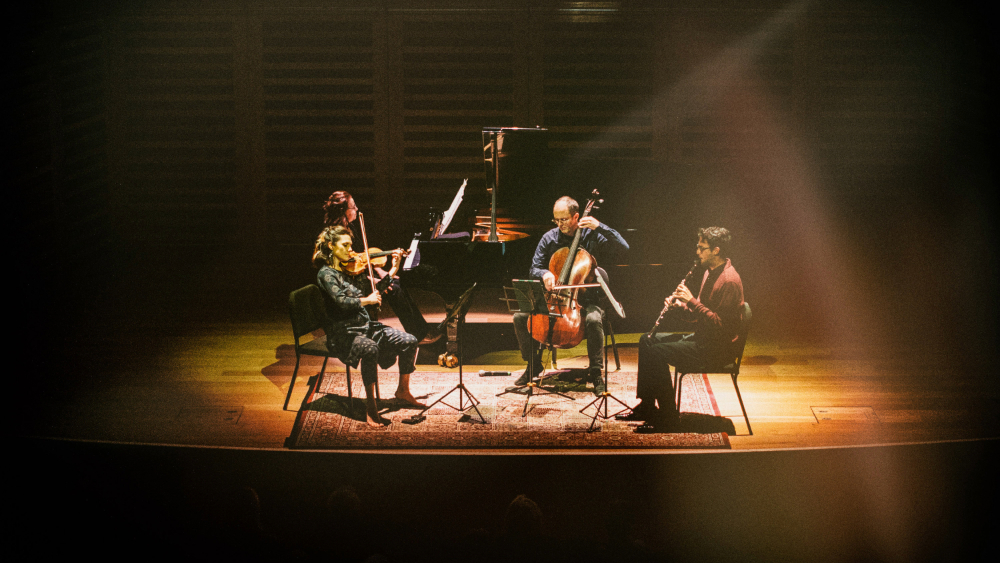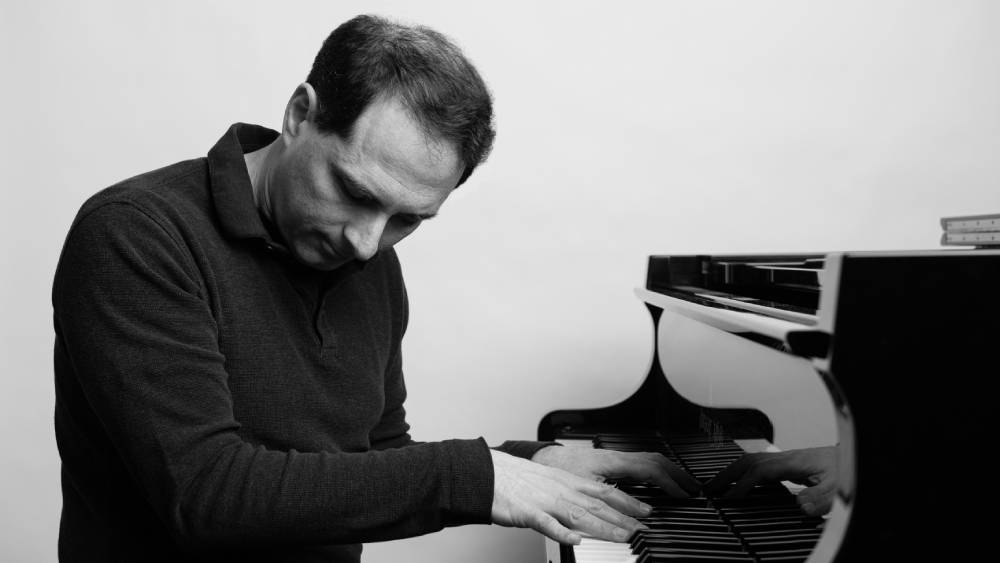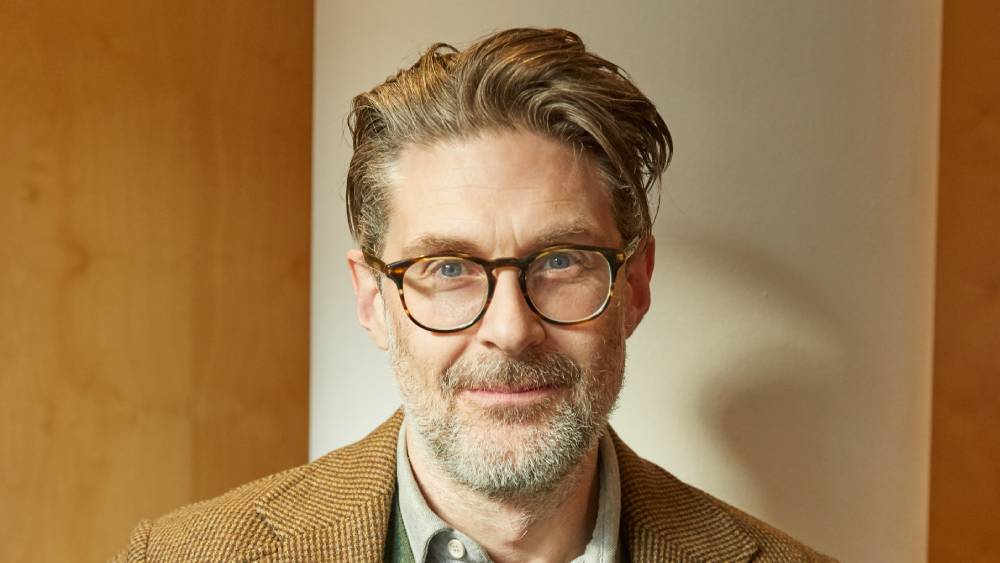As Robert Barry noted in a 2023 essay for Mubi, while the traditional ‘epic’ Hollywood film score still has some purchase — think Ludwig Göransson’s score for Oppenheimer, or the majority of Hans Zimmer’s output — the past few years have witnessed a resurgence of genuinely experimental film music. From the repurposing of existing material — such as director Paul Thomas Anderson giving Radiohead’s Jonny Greenwood free rein to channel the music of 20th century avant-garde composers like Messiaen, Ligeti and Penderecki — to the creation of brand new music like Colin Stetson’s Hereditary score or Mica Levi’s scores for the Jonathan Glazer films Jackie, Under the Skin and The Zone of Interest, the process of writing to picture is entering a more exploratory sonic space.
‘I think the film and TV composition world is starting to get quite adventurous,’ says Ruby Colley, a composer and sound artist based in Sussex. ‘I think people are wanting different things, and I’m hoping that with that comes an adventurous spirit in terms of what can bring a picture to life. I think contemporary classical music has so much to offer on that front.’
Until recently, there hasn’t been sufficient industry infrastructure to realise this growing musical impulse. That’s where initiatives like New Streams, which aims to bridge the gap between this desire to experiment and the necessary skills and contacts required to enter the world of sync music, have come in. A partnership between Riot Ensemble, music sync group Pusher and PRS for Music that launched in 2023, the project initially began life following a between Aaron Holloway-Nahum, co-artistic director of Riot Ensemble, and Daniel Lewis, PRS’s classical music relationship manager.
‘One of the things that composers need right now is developing new streams of funding for their work,’ Aaron tells M. ‘Even when you’re dealing with top music festivals and top composers, the commission fees are not what you might think. So anything, we thought, that allows composers to add another string to their bow, or develop some possible funding strategies in the future, was an interesting idea.’
Pursuing how sync might benefit the working composers of today made even more sense given the overlap between current industry trends and the types of musical vocabularies that have been employed in contemporary classical music. Aaron cites Hildur Guðnadóttir, composer of movie scores including Tár and Joker, as someone who utilises that kind of vernacular within the context of blockbuster moviemaking: ‘One of the things you hear in her music is this exploration of sound and timbre that is really unusual and unique.’
'The film and TV composition world is starting to get quite adventurous.' - Ruby Colley
New Streams’ inaugural cohort of chosen composers — Ruby, Jobina Tinnemans, Sophie Cooper and Will Davenport — all worked with composer and mentor Chris Roe to adapt an existing composition for a more sync-friendly context. They also worked with Pusher’s Jacob Wiltshire to demystify the process of writing for open-ended briefs, before workshopping and recording their pieces with Riot Ensemble. A detailed post-production process to create their final recordings to round things off. This meant recordings, plural. ‘In this world, the piece really is the recording that you have,’ Aaron explains.
One key takeaway for Ruby was finding new orchestrational flexibility within the tight, formal structure of trailer music. Her piece, Sacred Ground, draws on her interests in ambient and folk music, but there are now four or five different final versions of the track: ‘One pared-back version with just the atmospherics, one with live instruments — in this case, bass clarinet and trombone — one with just violin hooks...’ Knowing that the results will be so fluid, she adds, has the potential to completely alter how one constructs a piece of music in the first place.
New Streams reminded Will Davenport of the primary reasons he decided to become a composer, citing the 2001: A Space Odyssey soundtrack and the sci-fi experimentations of Delia Derbyshire as two soundworlds that were key to his musical development. But, having recently completed a degree in electronic music from the Guildhall School of Music, the transition into media composition on a professional level is still work in progress.
‘It’s always been something that I’ve really wanted to do but just never really found an entrance into it. It’s always been tricky to find that work,’ he tells M. ‘There’s a new generation of composers where the lines are blurred more now. You’re a composer for media, electronic and acoustic music. But you’re also in a band and you’re a session musician, too.’
As he continues to explore what an open-ended career in music composition might look like, New Streams provided Will with an opportunity to develop a range of different skills. Indeed, his piece Scuttle was emblematic of the whole New Streams process: what began as a 20-minute piece based on a single extended technique (the placing of a fan on a string to create an endless mechanical drone) became a dramatic four-minute piece of trailer music for a dark comedy-drama, condensing the original material without losing its compositional essence. This process was something Will worked on with Pusher’s Jacob as they ‘distilled things down and made it as clear as possible what my intentions are with the track’.
‘It’s always helpful getting another pair of ears to listen to something,’ he adds. ‘Having Jacob at Pusher giving his reference points and also giving references to what’s in fashion right now within these soundworlds was really interesting.’
‘There’s a new generation of composers where the lines are blurred more now.' - Will Davenport
For Sophie, a sound artist and trombone player based in West Yorkshire, New Streams represented her first chance to write for a professional ensemble. Her piece, Purgatory, was adapted from The Dante Loop, a sound installation for voices inspired by Dante’s Divine Comedy, that transitioned into a creepy, horror-inflected score for ensemble and solo singer.
‘I think I got really lucky that the musicians were all so up for my score,’ she tells M about Purgatory. ‘I think it really boosted my confidence in working with professional musicians.’
Jobina’s Silt, originally for the Nordic Affect Ensemble, transformed during New Streams into Sub Strata, a stretched texture of breathy voices and zooming lower strings. One key takeaway for Jobina, a composer whose background is in drum and bass music, was working within the specific visual medium of trailers.
‘It’s no longer a snapshot from a production,’ she says of present-day trailer music. ‘It’s just its own little gem, with its own kind of power — it has a life of its own.’
New Streams has also helped Pusher open up another potential avenue of musical exploration. ‘It’s always exciting for me to work with new talent and fresh perspectives, especially from an area I’m less clued-up on specifically,’ Jacob tells M. ‘I’m always excited to find challenging music and how it could find a home in the sync space specifically. These composers had the skills to offer something different.’
Jobina contrasts the world of contemporary classical music with an electronic music scene in which ‘audiences have really got used to sound processing and special effects’.
‘Everything we can do with VSTs [Virtual Studio Technology], people have become quite used to squeaks, squawks and interesting abstract sounds,’ she adds. ‘I think the media world and the classical world have to catch up with each other. I think the world is ready for it.’





